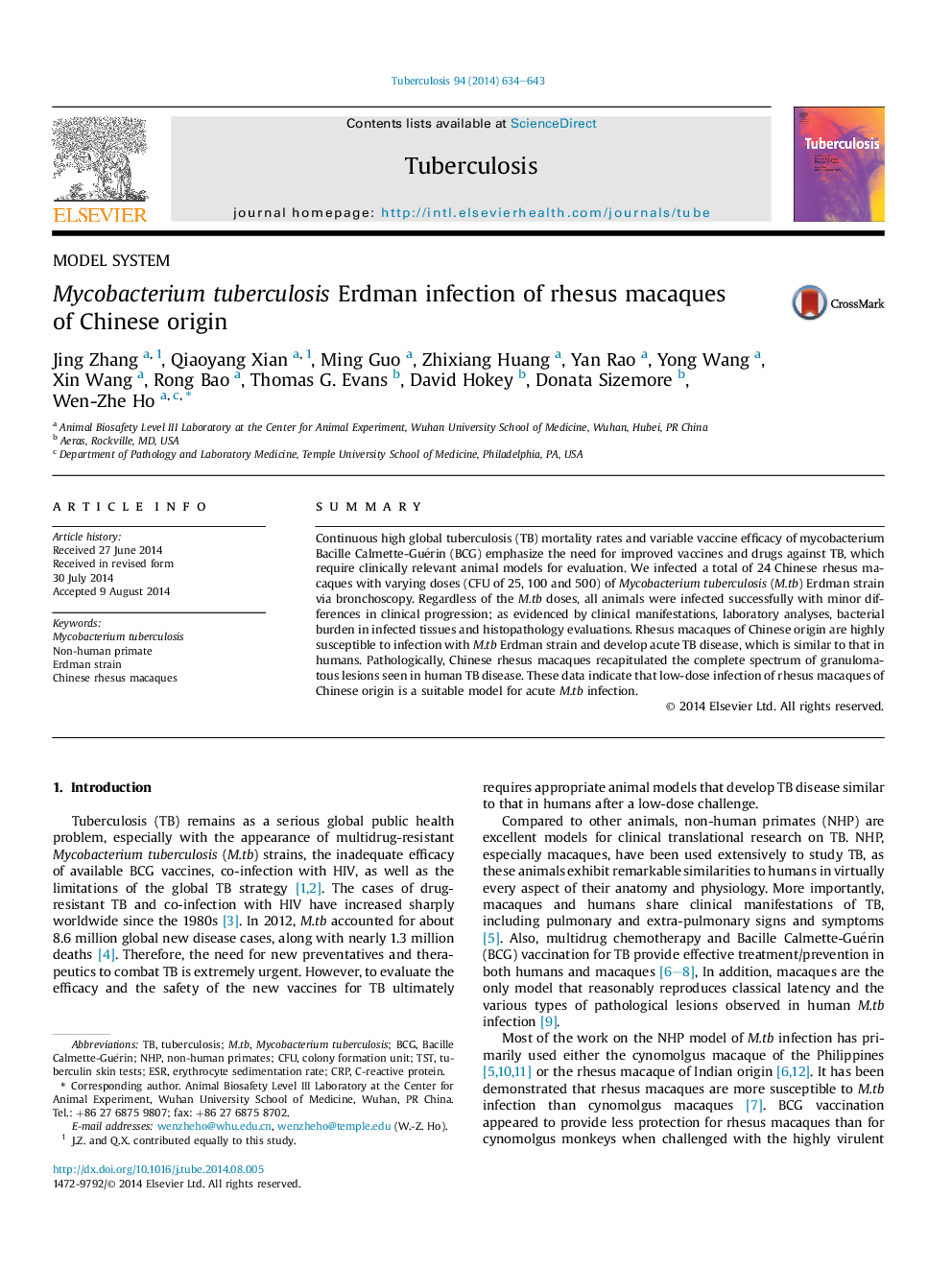| Article ID | Journal | Published Year | Pages | File Type |
|---|---|---|---|---|
| 10962066 | Tuberculosis | 2014 | 10 Pages |
Abstract
Continuous high global tuberculosis (TB) mortality rates and variable vaccine efficacy of mycobacterium Bacille Calmette-Guérin (BCG) emphasize the need for improved vaccines and drugs against TB, which require clinically relevant animal models for evaluation. We infected a total of 24 Chinese rhesus macaques with varying doses (CFU of 25, 100 and 500) of Mycobacterium tuberculosis (M.tb) Erdman strain via bronchoscopy. Regardless of the M.tb doses, all animals were infected successfully with minor differences in clinical progression; as evidenced by clinical manifestations, laboratory analyses, bacterial burden in infected tissues and histopathology evaluations. Rhesus macaques of Chinese origin are highly susceptible to infection with M.tb Erdman strain and develop acute TB disease, which is similar to that in humans. Pathologically, Chinese rhesus macaques recapitulated the complete spectrum of granulomatous lesions seen in human TB disease. These data indicate that low-dose infection of rhesus macaques of Chinese origin is a suitable model for acute M.tb infection.
Keywords
Related Topics
Life Sciences
Immunology and Microbiology
Applied Microbiology and Biotechnology
Authors
Jing Zhang, Qiaoyang Xian, Ming Guo, Zhixiang Huang, Yan Rao, Yong Wang, Xin Wang, Rong Bao, Thomas G. Evans, David Hokey, Donata Sizemore, Wen-Zhe Ho,
